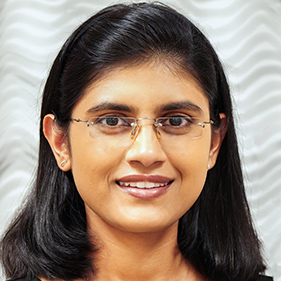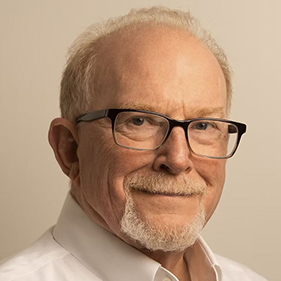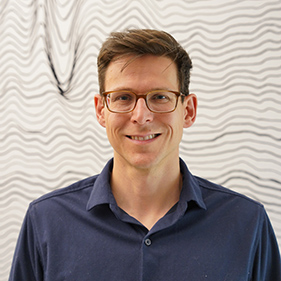The Society for Neuroscience (SfN) has honored UC Davis neuroscientist Maitreyee Wairagkar with the prestigious Peter and Patricia Gruber International Research Award in Neuroscience. This award recognizes neuroscientists with outstanding research and educational pursuit in an international setting.
SfN recognized three neuroscientists with this year's research award. Wairagkar, a project scientist at the UC Davis Neuroprosthetics Lab, received the award for her groundbreaking work on an intracortical "brain-to-voice" brain-computer interface (BCI).
The new BCI technology enables real-time voice synthesis. It uses artificial intelligence to decode neural activity measure with electrodes placed inside the brain. The BCI has allowed a man with ALS to speak expressively through a computer in a voice similar to his own, a breakthrough that received international attention. The system also has the ability to modulate intonation and pitch, with no perceptible delay. This marks a major step toward naturalistic communication.
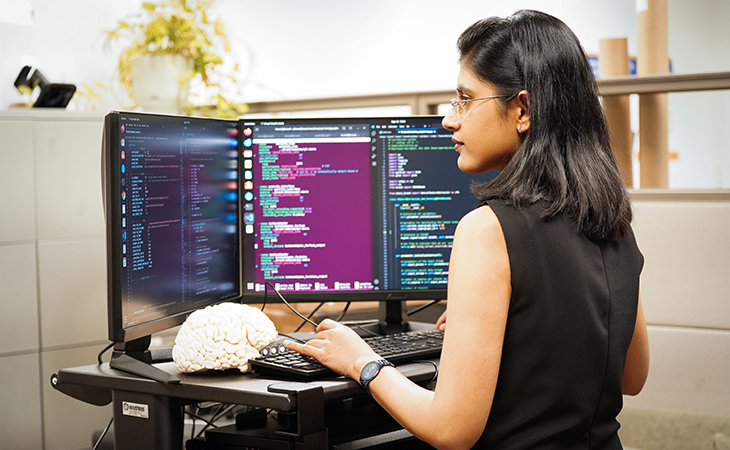
Brain-computer interface revolutionizing communication
This BCI work also represents one of the first scientific explorations of how prosody (the melody in speech) is encoded in the firing rates of individual neurons. Wairagkar and her colleagues explored how neurons in the brain work to create the rhythm and intonation patterns of speech. These dimensions of speech convey essential layers of meaning in a conversation, such as emotional state and nuanced intent.
Breakthroughs like these are engaging public curiosity and capital investors at historically high levels.
"We are in a very interesting phase where decades of academic BCI research and recent acceleration in industry effort have started to demonstrate real benefit of BCI for people with paralysis," Wairagkar said. "This is an exciting time for early career neuroscience researchers to pursue bold ideas."
This is an exciting time for early career neuroscience researchers to pursue bold ideas."-Maitreyee Wairagkar, Neuroscientist at the Neuroprosthetics Lab.
UC Davis Health at the helm of The Society for Neuroscience
This year, the president of the Society for Neuroscience is John H. Morrison, distinguished professor of neurology at UC Davis Health. Morrison, who had no role in selecting awardees, was delighted to receive the news.
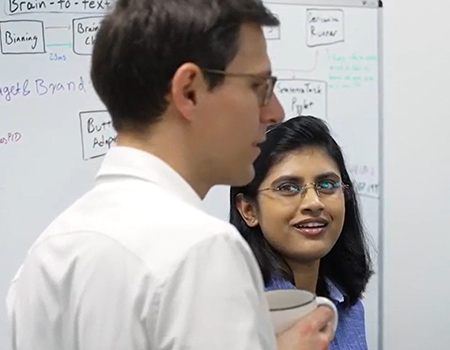
"Wairagkar's achievement is the latest to show that UC Davis's long-standing leadership in the fields of neuroscience and neuroengineering has entered a compelling new phase," Morrison said. "Young scientists like Wairagkar are combining decades of discoveries into technologies that will become, in just a short few years, available to the public. She and her generation are poised to profoundly change the world."
Neuroscientist Sergey Stavisky collaborates with and mentors Wairagkar in the lab he co-directs with UC Davis Neurosurgeon David Brandman.
"Maitreyee has been brilliant and relentless in pursuing her dream of building a voice neuroprosthesis for people with paralysis," Stavisky said. "She's solved numerous vexing engineering challenges to make this system. She's pushed the limit of human knowledge about how our brains achieve the remarkable feat of controlling the fine details of our voice. It's my immense privilege to work with her."
Young scientists like Wairagkar are combining decades of discoveries into technologies that will become, in just a short few years, available to the public. She and her generation are poised to profoundly change the world." -John Morrison, Distinguished Professor of Neurology.
Before joining UC Davis Health, Wairagkar was at Imperial College London and the University of Reading, also in England. There, she studied affective social robots and conversational AI to support individuals with dementia. She also conducted research to understand the dynamic reorganization of cortical activity for decoding movement intention to control non-invasive BCI and developing assistive and rehabilitation neurotechnologies for stroke.
Maitreyee has pushed the limit of human knowledge about how our brains achieve the remarkable feat of controlling the fine details of our voice." -Sergey Stavisky, Assistant Professor at the Department of Neurological Surgery.
"This recognition is not only a personal milestone, but also a reflection of the support I've received from mentors and colleagues," Wairagkar said. "Above all, it's an emblem of the collaborative spirit and shared passion in our science community to help improve the quality of life for people affected by neurological injury."
The award is supported by The Gruber Foundation and includes a $25,000 prize and travel to the SfN annual meeting this week in San Diego. Read the full announcement.

